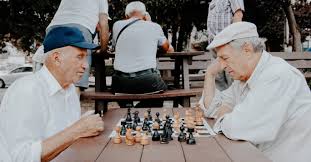
Cognitive health is the much-needed foundation of overall well-being, influencing memory, reasoning, problem-solving, and the ability to learn new information. As people age, changes in cognitive function are common, but they don’t have to be inevitable or debilitating. While some memory lapses are part of the normal aging process, more significant cognitive decline can impact quality of life. The good news is that there are many ways to support brain health, from lifestyle habits to professional care options.
What Affects Cognitive Health?
Cognitive function is influenced by a mix of biological, lifestyle, and environmental factors. Understanding these can help individuals take proactive steps to maintain mental acuity:
- Lifestyle Choices: Regular exercise, a nutritious diet, and mental engagement all contribute to brain function.
- Underlying Health Conditions: Cardiovascular disease, diabetes, and high blood pressure can impact blood flow to the brain, increasing the risk of cognitive decline.
- Sleep Quality: Poor sleep patterns, especially those associated with sleep apnea, can impair memory and concentration.
- Mental Stimulation: Lifelong learning and engaging in intellectually challenging activities can strengthen cognitive resilience.
- Social Interaction: Meaningful relationships and social engagement can protect against further cognitive decline and reduce the risk of depression.
- Chronic Stress: Long-term stress and anxiety elevate cortisol levels. These levels can negatively impact memory and cognitive function.
What is the Difference Between Normal Aging and Cognitive Decline?
It’s vital to differentiate between normal age-related changes and more serious cognitive issues.
Typical age-related cognitive changes may include:
- Occasional forgetfulness, such as misplacing items but eventually remembering where they are.
- Slower recall of names or words but still being able to retrieve them later.
- Taking longer to process new information or adapt to change.
Signs of more concerning cognitive decline include:
- Difficulty following conversations or instructions.
- Repeating the same questions or statements frequently.
- Struggling with decision-making or problem-solving.
- Getting lost in familiar places.
- Noticeable changes in mood or personality.
When cognitive decline becomes significant, seeking medical advice is essential, as early intervention can improve outcomes.
Ways to Support Cognitive Function
While some changes in cognition are natural, there are many proactive ways to maintain brain health and delay cognitive decline.
1. A Brain-Boosting Diet
The brain thrives on proper nutrition. Studies show that the Mediterranean and DASH (Dietary Approaches to Stop Hypertension) diets, rich in antioxidants and healthy fats, support cognitive function. Foods that promote brain health include:
- Fatty fish (salmon, mackerel, sardines) – rich in omega-3 fatty acids.
- Leafy greens (spinach, kale, broccoli) – packed with antioxidants and vitamin K.
- Berries (blueberries, strawberries) – high in flavonoids that improve memory.
- Nuts and seeds (walnuts, almonds, sunflower seeds) – good sources of healthy fats and vitamin E.
2. Regular Physical Activity
Exercise plays a huge role in maintaining cognitive health. It increases blood circulation to the brain, supports the growth of new neurons, and can also reduce the risk of conditions like Alzheimer’s disease. Beneficial activities include:
- Aerobic exercise (walking, swimming, cycling) to improve cardiovascular health.
- Strength training to boost overall physical health and reduce frailty.
- Yoga and tai chi to enhance balance, flexibility, and mental clarity.
Even simple activities like gardening or dancing can stimulate brain function and contribute to overall well-being.
3. Social Engagement and Emotional Well-Being
Isolation and loneliness have been linked to a greater risk of cognitive decline. Staying socially active strengthens the brain’s neural connections and promotes emotional well-being. Meaningful social engagement can include:
- Participating in community groups, book clubs, or fitness classes.
- Volunteering or mentoring younger generations.
- Regular visits with family and friends.
- Engaging in group activities such as board games or music therapy.
4. Mental Stimulation and Lifelong Learning
Keeping the mind engaged strengthens cognitive function and enhances memory. Activities that challenge the brain include:
- Reading and Writing – Encourages analytical thinking and comprehension.
- Puzzles and Strategy Games – Sudoku, chess, and crosswords stimulate problem-solving skills.
- Learning a New Skill – Whether it’s a language, musical instrument, or craft, acquiring new knowledge forms new neural connections.
- Technology Use – Engaging with apps, video games, or digital platforms designed for cognitive training.
5. A Supportive Living Environment
For older adults who need assistance with daily activities or structured cognitive stimulation, the right living environment is essential. High-quality care homes provide social opportunities, nutritious meals, and memory support programs tailored to individuals’ needs. Facilities like nursing homes in Kingston offer personalized care, mental engagement programs, and a sense of community that enhances well-being.
Final Thoughts
Aging does not have to mean a significant decline in cognitive health. By maintaining a healthy lifestyle, engaging in mental stimulation, and staying socially connected, individuals can preserve their cognitive function well into their later years. Whether through small daily habits or seeking a supportive care environment, taking steps toward cognitive wellness ensures a higher quality of life and continued independence.
By making cognitive health a priority, individuals and their families can foster well-being and enjoy a fulfilling aging journey.
Write and Win: Participate in Creative writing Contest & International Essay Contest and win fabulous prizes.


